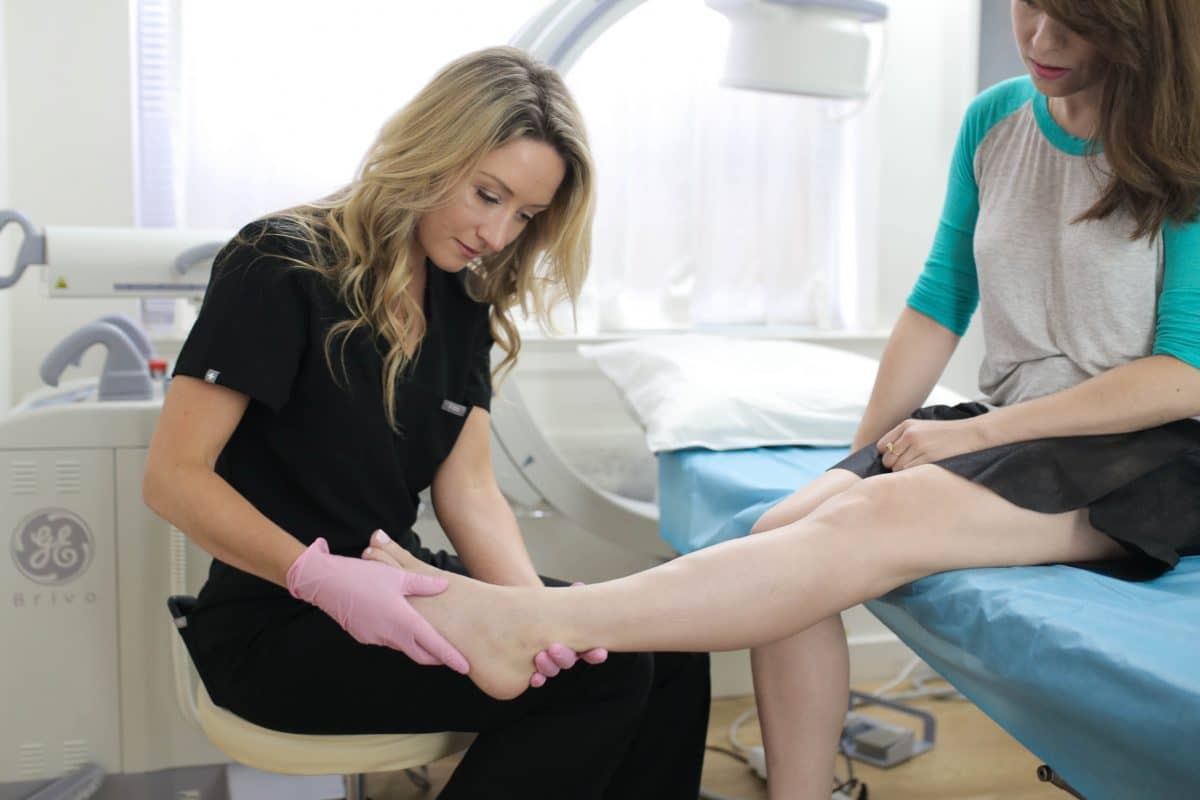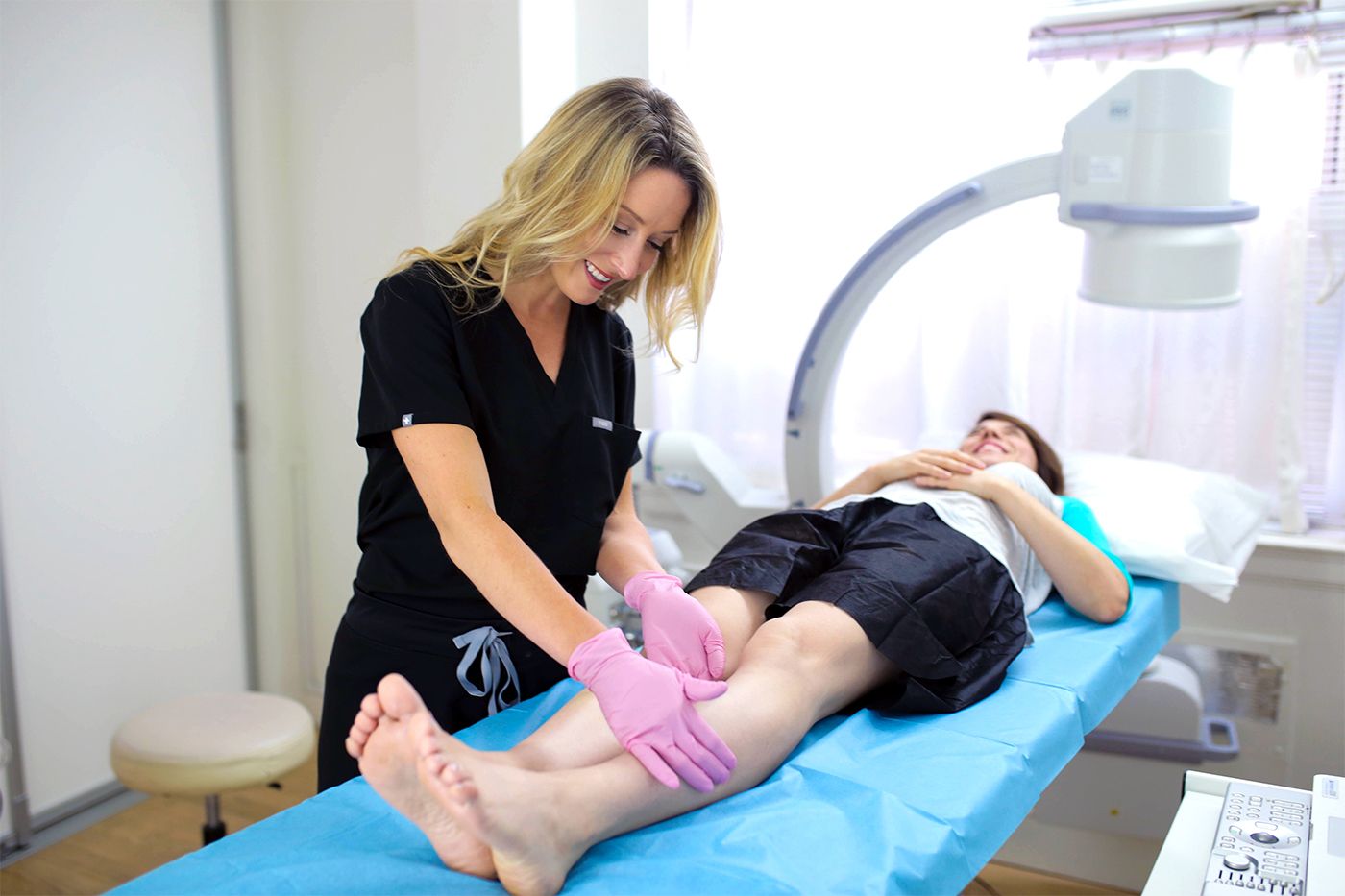Ultimately, this gives patients more options. When searching online for a vein doctor name in your area, be sure to find one that has ultrasound experience, is board certified, and has experience treating vein disease. You also want to find a doctor that is kind and compassionate with a thoughtful bedside manner to help guide you through the varicose vein treatment process.
Here’s a look at the answers to some of the most common questions about varicose veins. This information will allow you to learn more about varicose veins and help you find the right doctor when you are ready to perform an online search for “vein doctor name” in your area.

What are Varicose Veins?
Varicose veins are large, discolored, swollen veins noticeable just under the skin. The veins usually display a twisted pattern. Varicose veins most commonly appear on the legs, but they can occur anywhere on the body. Spider veins are very similar to varicose veins, except they are usually smaller in size (under 3 mm).
What causes Varicose Veins?
Veins are an extremely important part of the body because they help carry blood to the heart. The heart then pumps your blood to your lungs, where it picks up oxygen. From the lungs, your blood is carried throughout your body via your arteries. Your blood is then sent through your capillaries, which are small blood vessels, where the oxygen is released to your body’s tissues. The blood is then returned to your heart through your veins to start the process over again.
Your veins have a one-way valve, which helps to ensure that your blood flows properly to your heart without heading in the wrong direction. If these valves become damaged or weakened, such as what happens when a person experiences venous reflux or chronic venous insufficiency, your blood may not flow properly. Without the valve pushing your blood to move steadily towards your heart, your blood can back up in your veins. This backup causes your blood to pool at various locations in the vein, which in turn causes the vein to expand and swell.
What are the consequences of Varicose Veins?
For many people, one of the most unpleasant consequences of varicose veins is their appearance. The swollen, twisted veins are visible just under the skin. Due to its appearance, some people avoid wearing shorts, dresses and swimming suits. Besides its unpleasant appearance, varicose veins also can cause pain, achiness, and heaviness. In many cases, people do not even associate this pain and discomfort with varicose veins until they are diagnosed by a doctor.
Some people have even experienced dermatitis, which is a type of skin rash on their legs and ankles. In severe cases, a person with varicose veins may have thrombophlebitis, which is a blood clot just under the surface of the skin.
What is the best way to remove Varicose Veins?
Not that long ago, surgery was deemed to be the best treatment option for people suffering from varicose veins. Fortunately, modern medicine has changed this. Today, there are several minimally invasive treatment options available to those with varicose veins. Most of these treatments work to close off the damaged vein in order to reroute your blood to healthy veins.

Sclerotherapy
This treatment option is ideal for those with smaller varicose veins and/or spider veins. Sclerotherapy is done by injecting a liquid chemical into the affected vein. The liquid chemical is designed to close off the vein and help it fade away. In many cases, several treatments, spaced 4 to 6 weeks apart, are required to remove the varicose veins. After each treatment, your vein doctor will wrap the treated leg to prevent excessive swelling and to promote healing.
Radiofrequency Ablation
Radiofrequency ablation, also referred to as endovenous ablation therapy is typically an outpatient procedure. The idea of this treatment option is to use lasers (radiofrequency) to heat the vein and close it off. The doctor will start by numbing the area to be treated. The doctor will then make a small cut in the skin and insert a tiny tube called a catheter. The end of the catheter is heated so that the damaged vein can be closed off.
Venaseal (Vein Glue)
Instead of using heat or chemicals to close off your damaged vein, Venaseal uses a special adhesive. Your doctor will use ultrasound images to direct him to the right veins and then use an injection to seal the vein at several points. This permanent sealant will close off the vein without the need of surgery.








